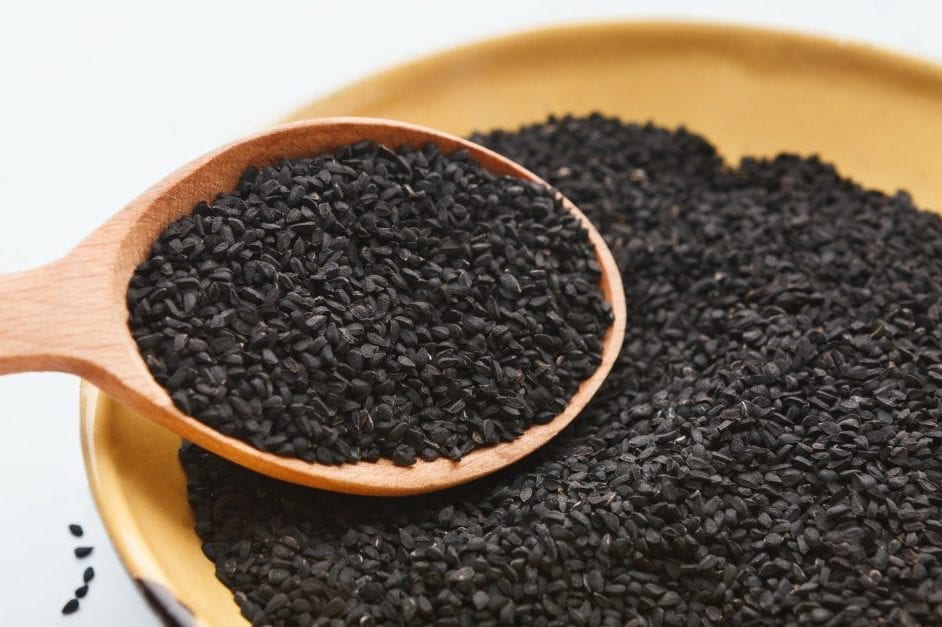
Black cumin can refer to the seeds of two quite different plants, both of which are used as spices. It is not at all similar to normal cumin in taste.
It is similar to caraway seeds, but nigella seeds (or kalonji), as black cumin is also known, is more widely used in Indian cooking.
Other names used for black cumin include black onion seed and black sesame seed.
The seeds are small, black and pungent with a smell that is similar to fennel.
They are usually roasted and ground.
Background
There is evidence that black cumin has been used in cooking for over two thousand years and has many uses in traditional medicine.
Black cumin seeds have been found in Ancient Egypt through archaeological studies and were present in the tomb of Tutankhamun.
Seeds come from an annually flowering fruit native to South and South Western Asia. The plant it derives from is a member of the parsley family.
The plant is sometimes used as a garden flower and is closely related to the popular ornamental plant love-in-a-mist.
Uses for black cumin
Black cumin goes well with root vegetable dishes and squashes such as butternut squash.
The seeds are commonly used as a garnish to Indian dishes where they are sprinkled over the top.
It is also used in stir fry dishes, and in traditional naan bread and India pastries. Its fennel type quality makes it versatile for use in both sweet and savoury dishes.
The taste combines hints of onion, oregano and black pepper and is a commonly used seasoning, although the flavour is quite mild.
Black cumin goes particularly well mixed with mint, thyme or paprika.
It can also be seeped in hot water and drunk as a tea.
Medicinal Uses
Black cumin is an important staple of traditional medicine and is used as a remedy for a wide range of ailments.
These include menstrual and post-partum problems, intestinal worms and digestive troubles, reduction of asthma and bronchitis symptoms, rheumatism, diabetes and high blood pressure.


But what is the second plant you mention, whose seeds are known as “Black Cumin?” Virtually the whole Internet is saying that black cumin equals nigella, and ONLY nigella. Yet your site suggests they may be something else – and I have a packet of black seeds that are called Black Cumin and are very definitely NOT nigella.
Look up Kala Jeera, this will bring up the correct seeds…this as far as I’ve got yet